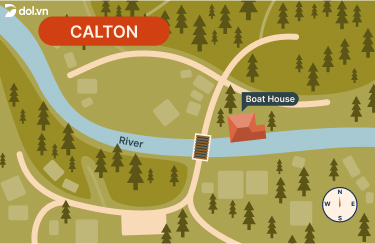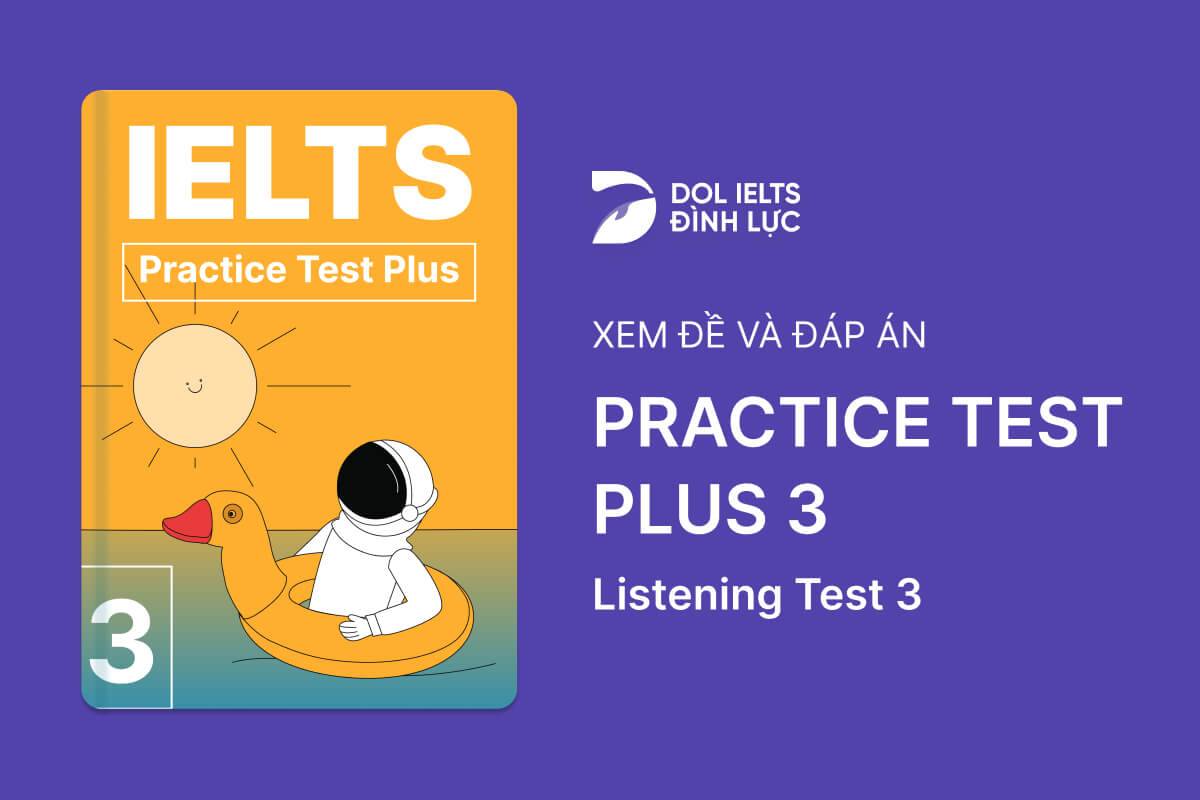Đề thi IELTS Online Test Practice Test Plus 3 - Listening Test 3 - Download PDF Câu hỏi, Transcript và Đáp án
Luyện tập đề IELTS Online Test Practice Test Plus 3 - Listening Test 3 được lấy từ cuốn sách Practice Test Plus 3 với trải nghiệm thi IELTS trên máy và giải thích đáp án chi tiết bằng Linearthinking, kèm answer key và list từ vựng IELTS cần học trong bài đọc.
Section
👂️ Bài nghe section 1
❓ Tapescript section 1
🔥 Đáp án & giải thích section 1
Giải thích chi tiết
 Đáp án cần điền là một màu sắc
Đáp án cần điền là một màu sắc
=> Biêt đáp án sắp tới khi nghe "I seem to remember from the ad that it's grey?" (đề cập tới màu sắc)
 Sau khi người phụ nữ hỏi có phải màu xám không, người đàn ông nói "that's it... doesn't show the dirt"
Sau khi người phụ nữ hỏi có phải màu xám không, người đàn ông nói "that's it... doesn't show the dirt"
=> Xác nhận là màu grey
=> Đáp án: grey 
Section
👂️ Bài nghe section 2

❓ Tapescript section 2
🔥 Đáp án & giải thích section 2
Giải thích chi tiết
Biết đáp án sắp tới khi nghe "The Treloar Valley passenger ferry"
 Nghe thấy "in the past, the river was the main form of transport in the area"
Nghe thấy "in the past, the river was the main form of transport in the area"
=> Trong quá khứ thì đường thủy là phương tiện đi lại chính trong khu vực này
=> Tuy nhiên không nhắc gì tới hiện tại
=> Đáp án có thể không phải C 
 Nghe tiếp thấy "the ferry timetable differs from day to day, according to the times and height of the tides"
Nghe tiếp thấy "the ferry timetable differs from day to day, according to the times and height of the tides"
=> Lịch trình của phà thay đổi mỗi ngày, tùy theo lượng nước thủy triều
=> Không có lịch khởi hành cố định
=> Loại đáp án B 
 Nghe tiếp thấy "the ferry is also seasonal, normally running between April and September"
Nghe tiếp thấy "the ferry is also seasonal, normally running between April and September"
Section
👂️ Bài nghe section 3
❓ Tapescript section 3
🔥 Đáp án & giải thích section 3
Giải thích chi tiết
 Mình cần nghe xem Howard nói gì về trải nghiệm viết dissertation
Mình cần nghe xem Howard nói gì về trải nghiệm viết dissertation
=> Biết đáp án sắp tới khi nghe "You’ll be starting your dissertation soon, won’t you?"
 Nghe thấy Howard nói về quá trình viết dissertation "I didn't really find it much fun"
Nghe thấy Howard nói về quá trình viết dissertation "I didn't really find it much fun"
=> Không thích việc viết luận văn
=> Loại đáp án B 
 Nghe tiếp thấy "I found it really improved my understanding of the whole degree programme [...] from the first year on"
Nghe tiếp thấy "I found it really improved my understanding of the whole degree programme [...] from the first year on"
=> Việc viết luận văn giúp hiểu rõ hơn nội dung toàn bộ chương trình học bắt đầu từ năm nhất
=> Hiểu hơn nội dung các khóa học trước
=> Đáp án là C 
Section
👂️ Bài nghe section 4
❓ Tapescript section 4
🔥 Đáp án & giải thích section 4
Giải thích chi tiết
 Mình cần nghe xem researcher đã học cái gì (Background - researcher had previously studied ___ )
Mình cần nghe xem researcher đã học cái gì (Background - researcher had previously studied ___ )
=> Biết đáp án sắp tới khi nghe "I should give a little relevant background information"
 Nghe thấy "before I started my current degree course in cognitive psychology, I studied English literature"
Nghe thấy "before I started my current degree course in cognitive psychology, I studied English literature"
=> Trước khi học cognitive psychology (là môn học hiện tại) thì speaker đã học English literature
=> Đáp án: English literature 


